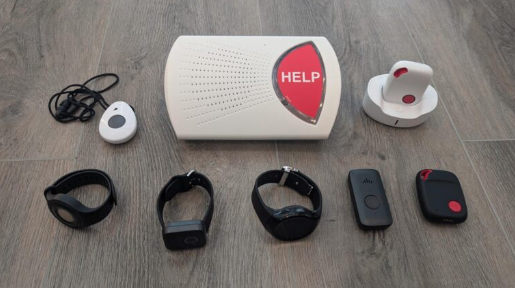Streamline Your Practice: Discover the Best Medical Practice Management Software

Running a medical practice involves a lot more than just providing quality care to patients. Efficiently managing appointments, billing, patient records, and compliance with healthcare regulations is critical to ensure that your practice operates smoothly. This is where medical practice management software comes into play. It helps streamline your practice by automating and simplifying various administrative tasks, so you can focus more on patient care.
In 2025, the demand for comprehensive, user-friendly, and efficient practice management software continues to rise. In this article, we’ll explore the top medical practice management software options for 2025, highlighting their features, benefits, and how they can improve your practice’s operations.
Why Do You Need Medical Practice Management Software?
Medical practice management software offers numerous benefits to healthcare providers and administrators. Here’s why investing in this software is essential:
- Efficient Appointment Scheduling: Scheduling appointments can be a time-consuming process, especially for busy practices. Medical practice management software helps streamline appointment scheduling, allowing for easy booking, rescheduling, and cancellations.
- Patient Records Management: Organizing and maintaining patient records is critical for efficient care delivery. These software systems allow for electronic health records (EHR) management, making it easy to access, update, and share patient data securely.
- Billing and Insurance Claims: Managing billing, insurance claims, and payments is often a challenging and complex task. Medical practice management software simplifies the billing process, ensuring accuracy and reducing the likelihood of errors or claim rejections.
- Improved Communication: Software platforms often include features for secure messaging between healthcare providers and patients, improving communication and reducing administrative burdens.
- Compliance and Reporting: Healthcare regulations, such as HIPAA, require practices to maintain certain standards in data security and patient care. These systems often include compliance management tools, ensuring that your practice stays up to date with industry requirements.
By integrating medical practice management software into your practice, you can reduce administrative workload, improve productivity, and provide better patient care.
Top Medical Practice Management Software for 2025
As technology advances, new software options are emerging that provide even more advanced features and capabilities for healthcare practices. Here are some of the top-rated systems to consider in 2025:
1. Kareo Clinical
Kareo is a leading medical practice management software designed for small and mid-sized practices. It offers comprehensive solutions for scheduling, billing, clinical documentation, and patient management.
- Key Features:Electronic Health Record (EHR) integrationBilling and insurance claim managementPatient scheduling and remindersReporting tools for financials and patient careSecure messaging and patient portal
- Best For: Independent practices, small medical practices, and clinicians looking for an affordable solution.
2. Epic Systems
Epic is known for being one of the most comprehensive and scalable medical practice management software platforms, making it a popular choice for large hospitals and healthcare networks.
- Key Features:Full EHR integrationAdvanced patient scheduling and registrationRobust billing and insurance claims managementTelemedicine featuresAnalytics and reporting tools
- Best For: Large medical groups, hospitals, and healthcare networks that need a highly customizable platform.
3. Cerner PowerChart
Cerner PowerChart is another top-rated software solution used in hospitals and medical practices across the country. It offers a complete suite of tools for scheduling, billing, patient management, and data analytics.
- Key Features:Electronic health record managementSecure messaging and communication toolsAppointment scheduling and patient remindersBilling, insurance, and claim managementData analytics and customizable reporting
- Best For: Large practices and healthcare organizations looking for an enterprise-grade solution.
4. Athenahealth
Athenahealth is a cloud-based medical practice management software that offers end-to-end solutions for practice management, EHR, and revenue cycle management. It’s widely used for its user-friendly interface and strong customer support.
- Key Features:Cloud-based EHR and practice managementRevenue cycle management and billing toolsAppointment scheduling and patient engagementAnalytics and reportingTelemedicine capabilities
- Best For: Practices of all sizes that want a fully integrated, cloud-based solution.
5. NextGen Healthcare
NextGen Healthcare provides a comprehensive suite of tools for practice management, EHR, patient engagement, and more. It’s ideal for practices that need an all-in-one platform with advanced features.
- Key Features:EHR and practice management integrationPatient portal and communication toolsBilling and insurance claim managementReporting and analyticsTelehealth capabilities
- Best For: Medium to large practices seeking a customizable solution with advanced features.
Comparison Chart: Best Medical Practice Management Software
| Software | Key Features | Best For | Price Range |
|---|
| Kareo Clinical | EHR integration, scheduling, billing, reporting | Independent practices, small practices | Affordable |
| Epic Systems | Full EHR, scheduling, claims, telemedicine, analytics | Large medical groups, hospitals | Expensive |
| Cerner PowerChart | EHR, scheduling, messaging, reporting, billing | Large practices, healthcare networks | Expensive |
| Athenahealth | Cloud-based EHR, billing, scheduling, analytics | Practices of all sizes | Mid-range |
| NextGen Healthcare | EHR, patient portal, telehealth, billing, analytics | Medium to large practices with customization needs | Mid to high range |
How to Choose the Right Medical Practice Management Software
Choosing the right medical practice management software can be overwhelming, but focusing on a few key factors can help you make the best decision for your practice:
- Size and Type of Practice: Some software is better suited for small practices, while others are designed for large hospitals and healthcare networks. Be sure to choose software that meets the needs of your practice size.
- Features: Consider the features that are most important for your practice, such as scheduling, billing, EHR, patient engagement, and telemedicine capabilities.
- Ease of Use: The software should be user-friendly for both staff and healthcare providers. The easier it is to use, the less time you’ll spend on training and troubleshooting.
- Integration with Existing Systems: Ensure that the software integrates well with your existing systems, such as electronic health records, billing, and insurance management tools.
- Support and Training: Choose a software provider that offers strong customer support, training, and troubleshooting resources to help you get the most out of the platform.
- Price: Costs can vary significantly. Look for a solution that fits your budget while offering the necessary features and capabilities to streamline your practice.
Conclusion
Adopting medical practice management software is an excellent way to improve the efficiency and effectiveness of your practice. By automating key tasks like scheduling, billing, and patient management, you can reduce administrative burdens and focus more on patient care. Whether you're a small practice or part of a large healthcare organization, there are numerous software solutions available to meet your needs.
Consider your practice size, the features that matter most, and your budget when choosing the best system. With the right medical practice management software, you can streamline your operations, improve patient satisfaction, and ensure the long-term success of your practice.









